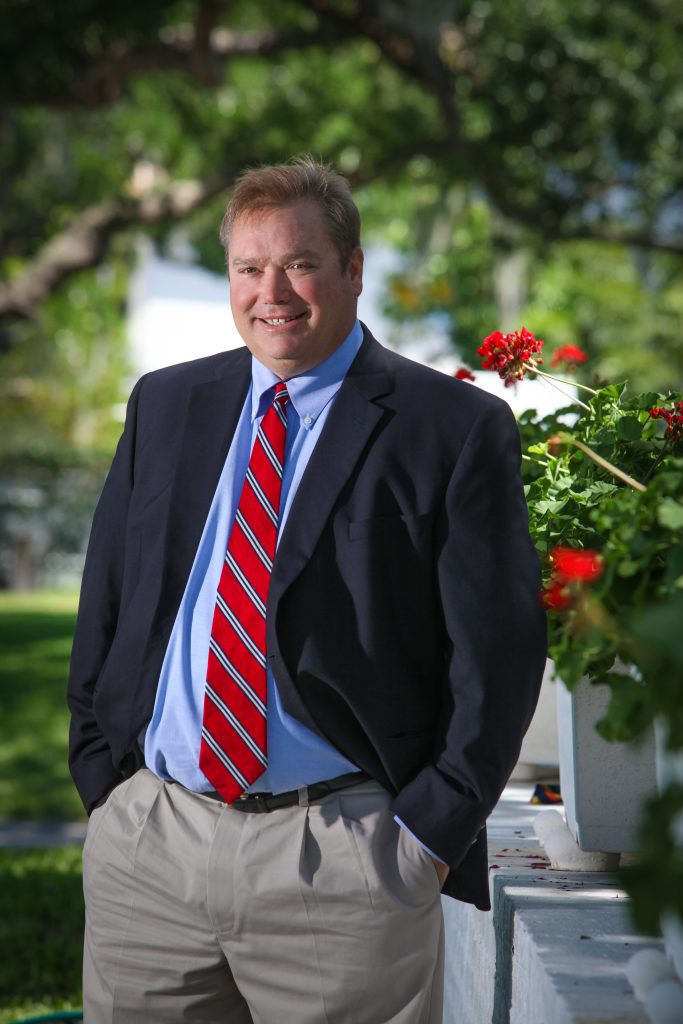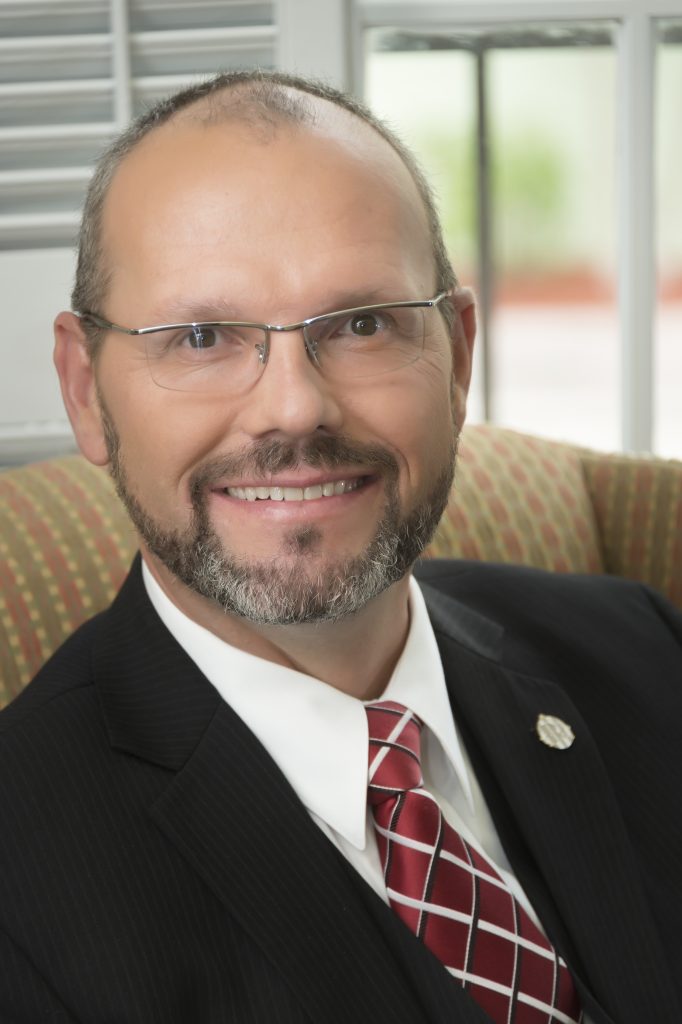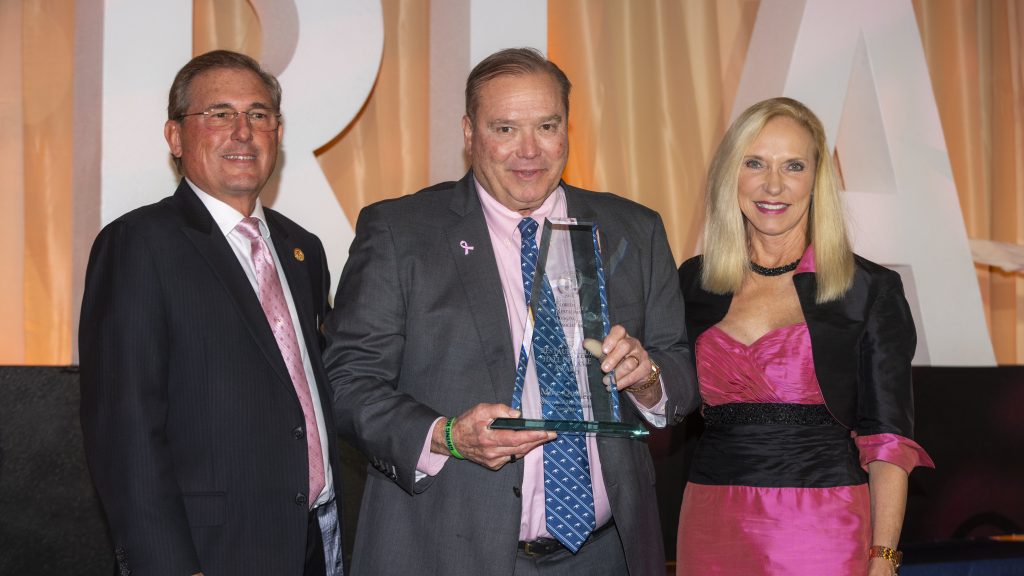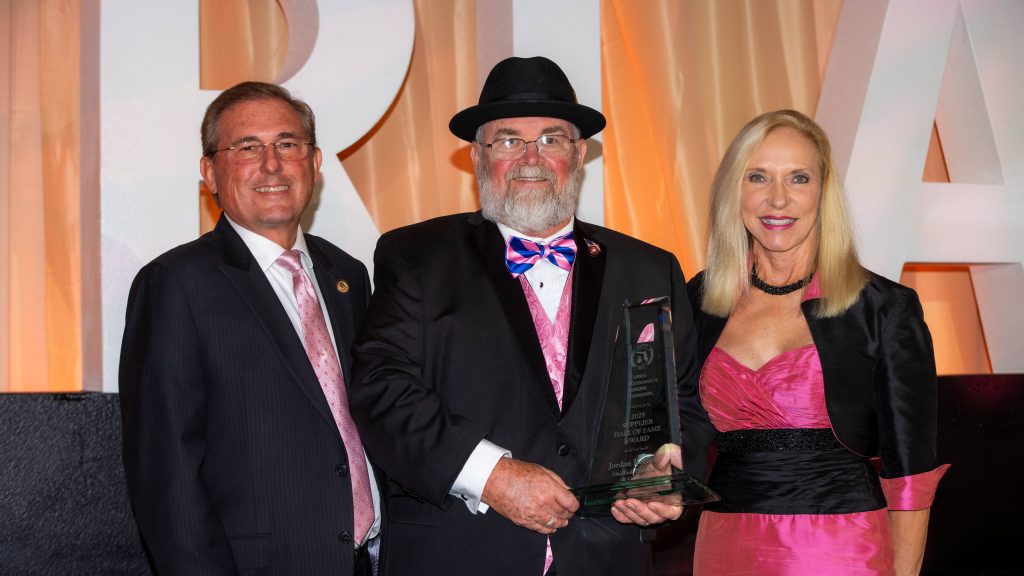~Hotelier, Restaurateur, and Supplier of the Year Icons Honored; Rare Lifetime Achievement Award Presented~

(L-R: Hotelier of the Year Heiko Dobrikow; Restaurateur of the Year Mike Quillen; Supplier of the Year Jordan Beckner; Lifetime Achievement Award Winner Dick Rivera)
DESTIN, FL – On Tuesday evening, the Florida Restaurant and Lodging Association (FRLA) honored its 2025 Hospitality Stars of the Industry Hall of Fame Winners during an evening gala at the Henderson Beach Resort. The 2026 FRLA Board Executive Committee and 2026 Chairman of the Board, Greg Cook of The Ritz-Carlton, Amelia Island, were also sworn in at the event.
“It is a privilege to honor those whose lifelong dedication has defined excellence in Florida’s hospitality industry,” said Carol Dover, President and CEO of the Florida Restaurant and Lodging Association. “FRLA’s 2025 Hall of Fame inductees have shaped and strengthened our industry through decades of leadership, vision, and innovation. With more than 140 years of combined service, their legacy of excellence continues to inspire and set the standard for future generations of hospitality professionals. Congratulations to our outstanding Hall of Fame winners!”
2025 FRLA Hall of Fame Winners
Lifetime Achievement Award: Dick Rivera, Suncoast Hospitality Partners, Sarasota
Link to headshot
 Dick Rivera is a distinguished leader of the restaurant industry with more than 50 years of experience driving growth and innovation.
Dick Rivera is a distinguished leader of the restaurant industry with more than 50 years of experience driving growth and innovation.
He founded Suncoast Hospitality Partners LLC, a Sarasota-based development and management company with ventures including Vin Cella, TGI Friday’s, Marlow’s Tavern, Brick’s Smoked Meats, and Clasico Italian Chophouse. His affiliated company Rubicon Enterprises owns and/or operates 26 restaurants nationwide. Rivera began his career with Steak and Ale Restaurants of America and went on to hold senior executive roles with leading brands such as Darden Restaurants, Longhorn Steakhouse, TGI Friday’s, Inc., Applebee’s, and El Chico Corp.
His achievements have earned widespread recognition, including Nation’s Restaurant News’ “Golden Chain” award, the “Restaurant Business Leadership Award,” the prestigious Silver Plate from the International Foodservice Manufacturers Association, and FIU’s Michael E. Hurst Hospitality Leadership Award. Rivera is deeply committed to service, serving on the boards of Golden Corral Corporation, Ringling College of Art and Design, and the Sarasota Orchestra. He is a past Chairman of the National Restaurant Association and Florida Citrus Sports Association and is a member of the Young Presidents’ Organization.
He holds a bachelor’s degree from Washington and Lee University, an Honorary Doctor of Business Administration from Johnson & Wales University, and is a proud U.S. Army veteran.
Supplier of the Year: Jordan Beckner – FiberBuilt Umbrellas, Pompano Beach
Link to headshot

Jordan Beckner is the founding partner and President of Sales of FiberBuilt Umbrellas and Cushions. He graduated from Northwood University with his bachelor’s degree and earned an MBA from the South University in Savannah, Georgia.
Since 2000, when he and Paul Knapp founded FiberBuilt Umbrellas, Inc., he has been an enthusiastically engaged member of the hospitality industry. He has served on the Board of Trustees for the American Hotel & Lodging Association’s Educational Foundation, as a member of the Florida Restaurant & Lodging Association’s Marketing & Allied Member Council, on FRLA’s Educational Foundation Board, as a board member of the Culinary and Hospitality Academy at Forest Hill Community High School in Wellington, and as co-chair of the Suppliers’ Council of the American Resort Development Association.
Jordan and his wife JoAnne have been married 36 years. They have two adult children and four grandchildren.
Restaurateur of the Year: Mike Quillen – Watershed Hospitality Concepts, Gecko’s Hospitality Group, Micas Mountain Kitchen, Sarasota and North Carolina
Link to headshot

Michael Quillen is President of three independent restaurant groups operating 15 locations across Florida and North Carolina, including Gecko’s Grill & Pub, Dry Dock Waterfront Grill, Tripletail Seafood & Spirits, Cask & Ale, Pie on Main, Lefty’s Oyster & Seafood Bar, and Micas Mountain Kitchen. Since opening the flagship Gecko’s Grill & Pub in Sarasota in 1992, Quillen has cultivated award-winning concepts with over 800 employees, low management turnover, and a hands-on leadership style that emphasizes hospitality, community engagement, and promoting from within.
Classically trained in corporate, franchise, and family-owned restaurants, Quillen blends business acumen, operational expertise, and a strong work ethic to create thriving, polished casual dining experiences. His leadership has earned multiple “Best Of” guest awards, the National Restaurant Association’s Florida Restaurant Neighbor Award five consecutive years, and the national Restaurant Neighbor Award in 2017. He personally received the Florida Cornerstone Humanitarian Award four years in a row.
Quillen serves on the boards of FRLA, the Greater Sarasota Chamber of Commerce, Selby Gardens, Visit Sarasota County, and the Sarasota County Sheriff’s Office Charitable Foundation. A graduate of Leadership Florida, he studied History and Political Science at New College and attended State College of Florida on a tennis scholarship. He and his wife, Mary, have two daughters.
Hotelier of the Year: Heiko Dobrikow, Riverside Hotel & The Las Olas Company, Fort Lauderdale
Link to headshot

Heiko Dobrikow is a seasoned hotelier and business leader with over 30 years of experience in hospitality, property, and asset management. Known for transforming organizations through servant leadership, he excels in building high-performing teams, optimizing revenue, and fostering cultures of care and service excellence. Heiko currently serves as Executive Vice President of The Las Olas Company and General Manager of the Riverside Hotel in Fort Lauderdale. His career includes leadership roles at premier resorts such as Marriott’s Bay Point Resort, Fisher Island Hotel & Resort, Casa Marina Resort, Mayfair Hotel & Spa, Radisson Deauville Beach Resort, and Hilton Palm Beach Oceanfront Resort.
Deeply engaged in his community, Heiko has chaired the Broward Workforce Development Board and the Greater Fort Lauderdale Chamber of Commerce, led the Florida Restaurant & Lodging Association – Broward Chapter, and contributed to numerous civic, tourism, and charitable organizations. His leadership has been widely recognized, earning honors such as Florida Trend’s Top 500 Most Influential Leaders, FAU’s South Florida Business Leader of the Year, and multiple awards celebrating his impact in tourism, business, and community service. Born in Germany, Heiko came to the U.S. at 17, earned a BA from the University of Kansas, and discovered his lifelong passion for hospitality. He enjoys traveling, motorcycling, boating, and family life with his wife Elenice and their parrots, Malibu and Sugar.
PDF of Press Release
Group Photo of Winners
About FRLA: The Florida Restaurant and Lodging Association is Florida’s premier non-profit hospitality industry trade association. Founded in 1946 as the Florida Restaurant Association, FRLA merged with the Florida Hotel and Motel Association in 2006. FRLA’s more than 10,000 members include independent hoteliers and restaurateurs, household name franchises, theme parks, and suppliers. The association’s mission is to protect, educate, and promote Florida’s nearly $112 billion hospitality industry which represents two million employees. Dedicated to safeguarding the needs of the membership, FRLA provides legislative advocacy to ensure the voices of its members are heard and their interests are protected. The association offers regulatory compliance and food safety training through Safe Staff® and FRLA’s subsidiary, RCS Training. The FRLA Educational Foundation provides industry-developed, career-building high school programs throughout the state.










